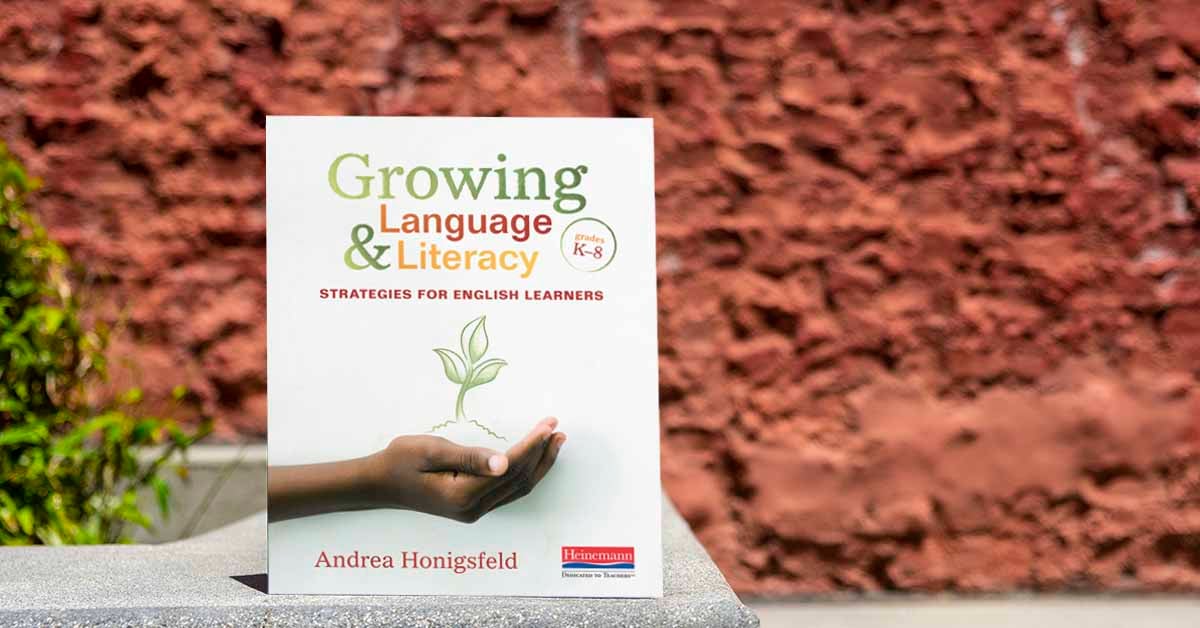 When English Learners’ cultural experiences and existing language skills are maximized, more positive outcomes are expected (Bunch, Kibler, and Pimentel 2014). One way to achieve this is to continue to allow them to use their native languages for brainstorming, drafting, or expressing their ideas in writing. Inviting them to add to their thoughts in English will bridge the languages available to them. Consider Cummins’ (2005) suggestions on how to make meaningful connections between students’ native languages and English by applying these strategies:
When English Learners’ cultural experiences and existing language skills are maximized, more positive outcomes are expected (Bunch, Kibler, and Pimentel 2014). One way to achieve this is to continue to allow them to use their native languages for brainstorming, drafting, or expressing their ideas in writing. Inviting them to add to their thoughts in English will bridge the languages available to them. Consider Cummins’ (2005) suggestions on how to make meaningful connections between students’ native languages and English by applying these strategies:
- Draw attention to the cognates that exists in the students’ native languages and English, thus raising their metalinguistic awareness regarding relationships across languages (as well as awareness about false cognates: not all words that look or sound the same in two languages mean the same).
- Have students author dual language books by translating from the initial language of writing such as their home language to English.
- Invite multimedia and multilingual projects that honor all the languages the students can use (e.g., iMovies, PowerPoint presentations, Prezis).
- Initiate “sister class projects where students from different language backgrounds collaborate using two or more languages” (Cummins 2005, 588).
Translanguaging may also be used in all phases of the writing process, including the planning, drafting, and final production stages. Students can develop bilingual picture books or illustrate bilingual reports to use their full linguistic repertoires as well as visual tools for expression.
Similarly, capitalize on students’ ability and willingness to express themselves through nonlinguistic representations, such as allowing ELs to communicate their ideas via drawings, diagrams, or storyboards, or though mixed modalities that integrate written words with illustrations. Digital or traditional scrapbooking encourages student self-expression (Lenters 2016); as students gather textual and visual artifacts around a theme, they can generate a collection of items in a photo album or digital platform. Invite them to label heavily and write short captions for each item in their scrapbooks. Emerging level ELs will enjoy writing about topics they have more
knowledge about and experience with, and they will benefit from writing supports you plan for them.
…
The above has been adapted from Growing Language and Literacy. To learn more, visit Heinemann.com
 Follow us on Instagram @heinemannpub to stay up to date on the latest books, your favorite authors, and upcoming events!
Follow us on Instagram @heinemannpub to stay up to date on the latest books, your favorite authors, and upcoming events!
 Dr. Andrea Honigsfeld is Associate Dean and Director of the Doctoral Program (Educational Leadership for Diverse Learning Communities) at Molloy College, Rockville Centre, NY. Before entering the field of teacher education, she was an English as a Foreign Language teacher in Hungary (grades 5-8 and adult), an English as a Second Language teacher in New York City (grades K-3 and adult), and taught Hungarian at New York University. A Fulbright Scholar and sought after national presenter, Andrea is the coauthor or coeditor of 20 books on education and numerous chapters and research articles related to the needs of diverse learners. Andrea is coauthor of the Core Instructional Routines books with Judy Dodge. Visit Andrea at www.andreahonigsfeld.com
Dr. Andrea Honigsfeld is Associate Dean and Director of the Doctoral Program (Educational Leadership for Diverse Learning Communities) at Molloy College, Rockville Centre, NY. Before entering the field of teacher education, she was an English as a Foreign Language teacher in Hungary (grades 5-8 and adult), an English as a Second Language teacher in New York City (grades K-3 and adult), and taught Hungarian at New York University. A Fulbright Scholar and sought after national presenter, Andrea is the coauthor or coeditor of 20 books on education and numerous chapters and research articles related to the needs of diverse learners. Andrea is coauthor of the Core Instructional Routines books with Judy Dodge. Visit Andrea at www.andreahonigsfeld.com



